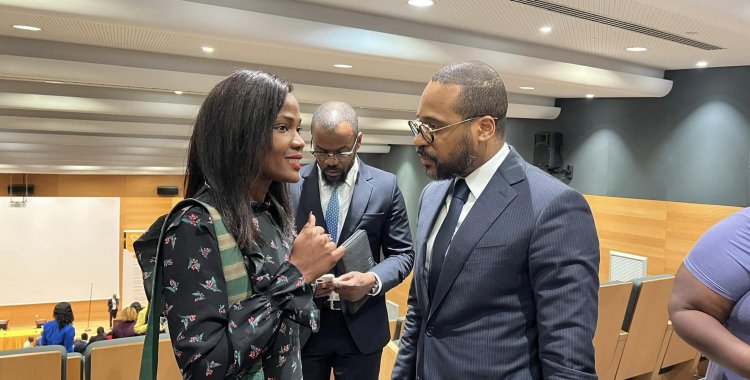Marcy Lopes said that the meeting is a common practice, to consult employees in the sector, as well as to convey the message about the vision for this mandate, having already been held in the provinces of Cabinda, Bengo and Cuanza Sul.
The government official said that the justice sector is essential in the relationship with citizens, requiring a "very large" demand for services.
"And that we have the concern and obligation to resolve all these situations of difficulties in the functioning and organization of our services", said the minister.
The holder of the Justice and Human Rights portfolio highlighted that improving working conditions and infrastructure "is a situation that does not depend solely on good will", but rather on the financial availability of the State.
"Good will exists, the urgent intention to resolve the problem as well, but the actions of State bodies depend on public financing. This public financing is defined by the General State Budget, which has its own revenues, programs and plans for execution in a given financial year", he stressed.
Marcy Lopes highlighted the effort that has been made "to include the improvement, repair and construction of new justice services".
"We hope that, within the financial availability of the State, it can match our needs with the needs of all other sectors that make up the Government and in this way ensure that we are able to provide a good public service to people, with improvements, both of the habitability situations of our services and thus reduce waiting times and queues in our services", he pointed out.
Marcy Lopes, asked to comment on the recent strike that bailiffs carried out for five days, to demand improved working and salary conditions, stated that the meeting did not deal with the strike issues.
"We do not deal with strike matters, we consulted the justice officials, this has to be clear", he stated, clarifying that the health insurance process, one of the demands contained in the claim booklet, is an obligation of the Social Security Fund and not from the ministry.
Justice officers, led by the Union of Justice Officers of Angola (SOJA), carried out a strike between 14 and 18 August, which the employer considered illegal, to demand improvements in technical and administrative services, whose conditions are currently "inhumane and inconceivable" in several provinces of the country.
The strike ended without the parties reaching an agreement, according to SOJA, which could resume the strike in October if the situation continues.







